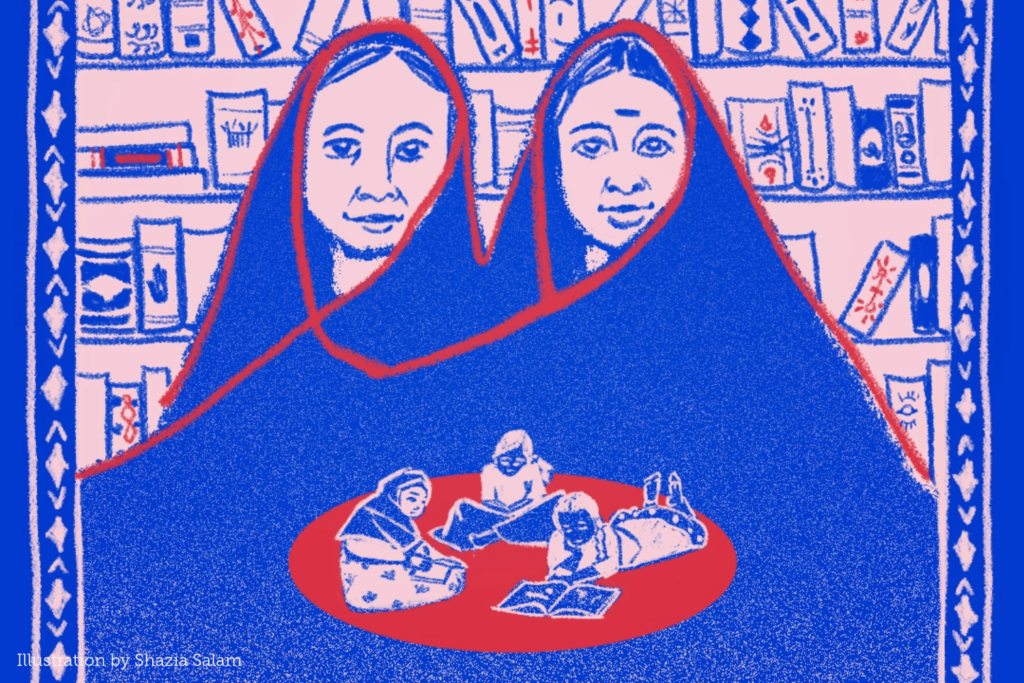Savitribai Phule and Fatima Sheikh broke all the rules of their times. In the latter half of the nineteenth century, in the state of Maharashtra, they began India’s first girls’ school called the Indigenous Library in Fatima Sheikh’s home. In doing so they unapologetically defied Brahmanical and patriarchal oppression and made history as India’s first female teachers.
The profound achievements of Savitribai Phule and husband, Jyothiba Phule, as the founders of India’s first school for girls is widely recognized. Their struggle for anti-casteist education for girls in a society drenched in casteism and patriarchy paved the way for Dalit and gender based resistance. Savithribai Phule’s pursuits as an educator, activist, poet and overall trailblazer is lauded across country and state.
Fatima Sheikh’s equally remarkable work however, has been largely undermined. Conventional history has not done justice to Fatima Sheikh’s memory or the sisterhood these women forged in standing up against the powers of the times. Even when Jyothiba and Savithribai Phule were thrown out of the family home for their feminist and anti-caste ideology, it was Fatima Sheikh and her brother Usman Sheikh who welcomed them into their home, which later also became the site for the Indigenous Library, school for girls regardless of caste or religion.
Both Savitribai and Fatima taught in the girls schools which they helped Jyothiba set up and worked to encourage families to send their daughters to learn. It is said that they went door to door to convince families of the value of a girls education, despite the opposition which at times came in the form of dung and mud being flung at them. Savitribai was known to have carried an extra sari on her walk to school for this reason. Their work is foundational to the struggles against caste and gender-based oppressions that not only persist today, but that upper caste people often shamefully fight to uphold.
On the erasure of their sisterhood and particularly Fatima Sheikh’s achievements Arpita Ankur writes,
“In a society which constantly pits women from the privileged caste-class against each other even today, back then in the 19th century, Fatima Sheikh and Savitribai Phule (both Bahujan women) became the first female teachers of India and manifested what happens when two underprivileged, marginalised women join hands – that together they bring about a revolution. Maybe that is why dominant caste-gatekeepers don’t teach us about them in course-curriculums or make them a part of the mainstream media narrative, because they are afraid; afraid of history repeating itself, afraid of marginalised women challenging the status quo.” (Ankur, Live Wire)
The revolutionary spirit that guides their friendship is so crucial to remember. It is these stories of allyship and mutual collaboration that need to take up rightful and hopeful space in our collective consciousness. Stories of women bravely walking together to change their world, can perhaps urge us to walk more bravely in ours.


